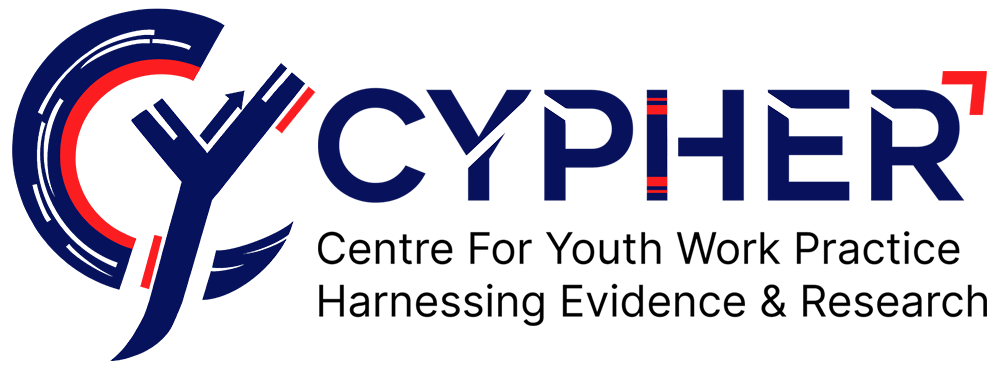Discover Leksa: Crafted Elegance, Seamless Functionality. Elevate your creative portfolio, impress your audience. Where creativity meets functionality.


What makes someone a ‘good’ youth work practitioner? Is it the degree they hold? The certificates listed on their CV? In Singapore’s high-performing and fast-paced environment, youth work practitioners are expected to do it all; from implementing structured interventions to providing psychosocial support, often across diverse & complex settings. While formal training and credentials play a role in performing these duties, many in the field are beginning to ask: do paper qualifications really tell us enough about a practitioner’s effectiveness?
Effectiveness in youth work can’t be measured by qualifications alone. To address this gap, 13 Essential Characteristics for Therapeutic Practitioners (ECTPs) were developed as a practical framework to highlight what truly matters in frontline practice (Nair et al., 2024). The ECTPs outline core characteristics that reflect the capabilities needed for meaningful, ethical, and responsive practice, capturing the intangible yet essential qualities that make a youth worker, or any therapeutic professional, truly effective.
This article kicks off our new series, WHAT MAKES A GOOD YOUTH WORK PRACTITIONER?, where we explore each of the 13 ECTPs. But first, we take a look at where this idea came from, and why it’s significant and timely for Singapore’s youth work sector.
The Issue With Credentialism
Singapore places a strong emphasis on human capital and consistently ranks among the highest on the Human Capital Index (The World Bank, 2023). However, this success may have contributed to credentialism—the tendency to prioritise paper qualifications over other forms of expertise (Appold, 2005; Yahya, 2014). This is particularly concerning in therapeutic and human services work, where attributes such as emotional intelligence, reflexivity, ethical judgment, and resilience are as vital as theoretical knowledge.
As early as the 1990s, scholars were cautioning against the phenomenon of qualification inflation in Singapore (Lee, 1991). More recently, government leaders have also called for a shift away from valuing degrees over capabilities (Ng, 2018). In the field of youth work, where the nature of cases is often unpredictable and shaped by diverse variables, such a shift towards practical competence is not just ideal; it’s urgent.
Local research by Sim (2012) found that even practitioners with the ‘right’ credentials often felt unprepared or inadequate in real practice. Others, like Jennings and Skovholt (2016), argued that therapeutic competence spans cognitive, emotional, and relational domains; none of which are easily captured by a degree or certificates alone.
A Local, Practice-Based Response
In response to this, Nair et al. (2024) developed 13 ECTPs based not just on theory, but over 50 years of combined local practice experience in youth work, counselling, education, and clinical supervision. The guiding approach was grounded in the Aristotelian concept of phronesis, or practical wisdom, which emphasises context-sensitive, ethical, and experience-informed judgment.
The ECTPs offer a way to bridge the gap between formal education and real-world competence. These characteristics, while especially relevant for youth work, are applicable across therapeutic professions, where competences like relational skills, ethical clarity, and emotional regulation are non-negotiable.
13 ECTPs at a Glance
1. Ethical Understanding – Integrating principle-based and virtue ethics for professional conduct
2. Emotional Intelligence – The capacity to recognise, regulate, and respond appropriately to one’s own emotions and those of others
3. Professional Expertise – Combining relational and technical skills for effective therapeutic practice
4. Cognitive Processing – Information management and synthesis that underpins one’s ability to analyse cases and make sound judgments
5. Cognitive Flexibility – Being non-binary & adaptive in one’s thinking & behaviour in response to different circumstances
6. Wisdom – A transdisciplinary, reflective ability to see meaningful connections and make prudent decisions aimed at comprehending cases and resolving issues effectively
7. Language Proficiency – The ability to speak and write with clarity and nuance in the main working language
8. Fortitude – The mental and emotional strength to face resistance, ethical dilemmas, and burnout with resilience
9. Humility – A truth-seeking stance marked by self-awareness and acknowledgment of one’s limits
10. General Knowledge – Broad, interdisciplinary understanding developed through everyday experiences, which expands perspective and supports critical reflection
11. Internal Locus of Control – A tendency to view outcomes as shaped by one’s own actions, supporting motivation, accountability, and resilience in practice
12. Personality Factors – The specific traits of low neuroticism, high conscientiousness, and high openness, which support emotional stability, reliability, and adaptability in practice
13. Reflexivity – The critical ability to scrutinise one's own actions and motives, fostering self-awareness in practice
Why This Matters for Youth Work in Singapore
Youth work in Singapore demands far more than technical knowledge. It requires real-time responses to complex, evolving situations that no qualification alone can guarantee. Yet hiring and professional development in the sector tend to prioritise paper qualifications. This is problematic, as knowledge gained through formal education is often theoretical and decontextualised (Brown et al., 1989; Guile, 2003), whereas youth work relies on situated knowledge that is deeply embedded in real-world contexts and essential for navigating complexity in practice.
This is where the 13 ECTPs offer concrete value. They give practitioners and organisations a clear, shared language for discussing the deeper competencies that underpin meaningful frontline work. They also prompt more holistic questions during hiring, supervision, and staff development such as: Does this practitioner demonstrate conscientiousness? Can they think flexibly under pressure? Are they growing in self-awareness and reflexivity?
Ultimately, the ECTPs invite a shift in how the sector defines and develops practitioner competence; from a checklist of qualifications to a more dynamic and context-sensitive understanding of what it means to do the work well. In recognising and naming these deeper characteristics, the ECTPs affirm the complexity of youth work and underscore the practical wisdom needed to navigate it with care and sound judgment.
Looking Ahead
Being more than a checklist, the ECTPs remind us that youth work is dynamic, and that developing good practitioners is an ongoing process of learning and self-examination.
This article opens up an ongoing exploration of what makes youth work effective in the real world. In the coming pieces, we’ll take a closer look at each of the 13 ECTPs; what they mean in everyday practice, their unique significance, and how they help us serve young people with greater care and clarity.
Let’s start that conversation, one characteristic at a time.

A PLEA FOR
SUPPORT
At CYPHER, we believe that scientific knowledge should benefit youths, practitioners, policymakers, and the wider community.
That’s why we provide science-made-simple articles, expert insights, and even original research — all freely accessible, with no paywall and no hidden agenda. We aim to produce work that is clear, practical, and focused on addressing real issues within our community.
If you value independent, evidence-based resources, please consider supporting us with a donation. Every contribution, no matter the size, makes a difference. We rely on the generosity of people like you who believe in non-profit work for the greater good.
Can you help us?
A PLEA FOR SUPPORT
At CYPHER, we believe that scientific knowledge should benefit youths, practitioners, policymakers, and the wider community.
That’s why we provide science-made-simple articles, expert insights, and even original research — all freely accessible, with no paywall and no hidden agenda. We aim to produce work that is clear, practical, and focused on addressing real issues within our community.
If you value independent, evidence-based resources, please consider supporting us with a donation. Every contribution, no matter the size, makes a difference. We rely on the generosity of people like you who believe in non-profit work for the greater good.
Can you help us?
References
Appold, S. J. (2005). The weakening position of university graduates in Singapore’s labor market: Causes and consequences. Population and Development Review, 31(1), 85–112. https://doi.org/10.1111/
j.1728-4457.2005.00053.x
Brown, J. S., Collins, A., & Duguid, P. (1989). Situated cognition and the culture of learning. Educational Researcher, 18(1), 32–42. https://doi.org/10.3102/
0013189X018001032
Guile, D. (2003). From ‘credentialism’ to the ‘practice of learning’: Reconceptualising learning for the knowledge economy. Policy Futures in Education, 1(1), 83–105. https://doi.org/10.2304/
pfie.2003.1.1.10
Jennings, L., & Skovholt, T. M. (2016). The cognitive emotional, and relational characteristics of master therapists. In L. Jennings & T. M. Skovholt (Eds.), Master therapists: Exploring expertise in therapy and counselling (10th Anniversary ed., pp. 31–52). Oxford University Press. https://doi.org/10.1093/
med:psych/9780190496586.003.0003
Lee, W. O. (1991). Social change and educational problems in Japan, Singapore and Hong Kong. Palgrave Macmillan UK. https://doi.org/10.1057/9780230379060
Nair, P., Wu, S., Peh, G., & Omar, N. A. (2024). From paper to purpose: Phronesis-informed essential characteristics for therapeutic practitioners in Singapore to attenuate the impact of credentialism (Part 1). Routledge Open Research, 3, Article 28. https://doi.org/10.12688/
routledgeopenres.18506.1
Sim, T. (2012). The growing pains of family therapy in Singapore. Journal of Family Therapy, 34(2), 204–224. https://doi.org/10.1111/j.1467-6427.2010.00519.x
The World Bank. (2023, October). Human capital project brief—Singapore. https://thedocs.worldbank.org/en/
doc/64e578cbeaa522631f08f0cafba8960e-
0140062023/related/HCI-AM23-SGP.pdf
Yahya, F. B. (2014). Is the Singapore economy succumbing to “credential inflation”? National University of Singapore. https://lkyspp.nus.edu.sg/docs/default-source/ips/singapore-economy-and-credential-inflation_160714_report.pdf



